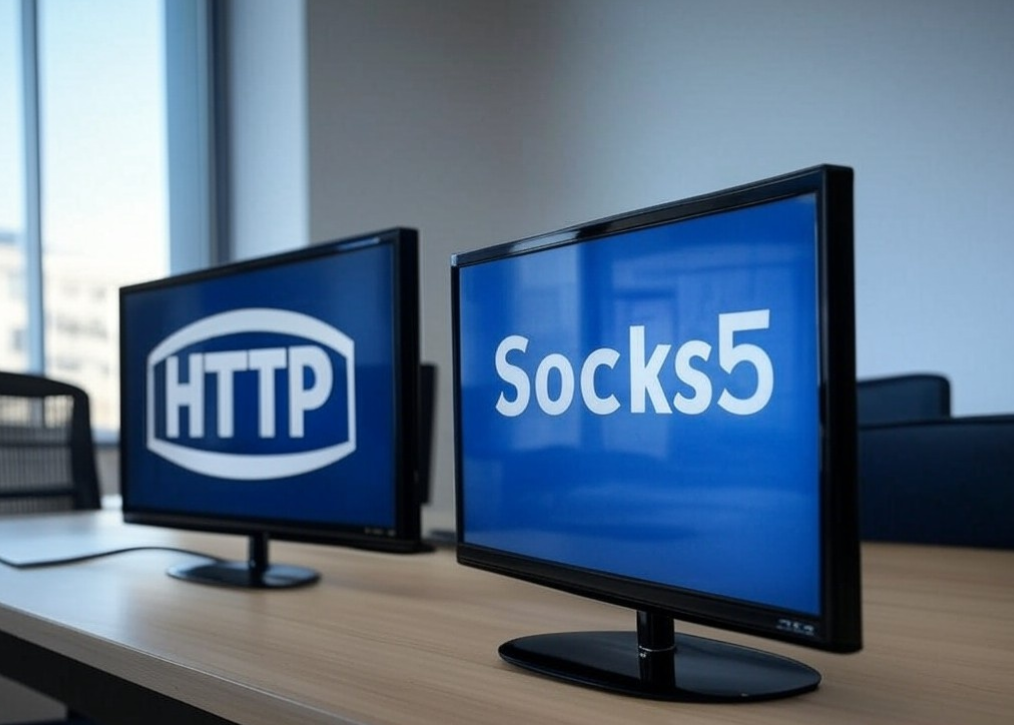As social media operations become increasingly sophisticated, the choice of proxy protocols has become a key factor affecting operational efficiency, data security and compliance. HTTP and Socks5 are two mainstream proxy protocols, each with unique characteristics and application scenarios. A deep understanding of their differences is essential for developing effective social media operation strategies. This article will explore the core characteristics of HTTP and Socks5 proxy protocols, their specific applications in social media operations, and why 98IP proxy has become the preferred choice for many operators, while ensuring the originality and depth of the content, aiming to provide readers with valuable insights.

I. HTTP Proxy Protocol: The Basic Support for Social Media Operations
1.1 Core Features of HTTP Proxy
HTTP proxy mainly serves the data transmission of HTTP/HTTPS protocol. As an intermediary between the client and the target server, it can perform functions such as request forwarding, response return, content caching, and access control. HTTP proxy is easy to configure and widely supports various browsers and applications. It is the first choice for beginners and light users.
- Content caching: Reduce server load and speed up response by caching frequently accessed content.
- Access control: Implement access restrictions based on IP addresses or URLs to protect sensitive resources.
- Anonymity protection: Provide different degrees of anonymity to help hide the user's true identity.
1.2 Application of HTTP proxy in social media operation
- Data crawling: Used to collect public data on social media platforms and analyze user behavior trends.
- Content publishing: Publish content through proxies to bypass geographical restrictions and achieve multi-regional coverage.
- Account management: Protect the security of the main account, manage multiple small accounts through proxies, and disperse risks.
1.3 Limitations of HTTP proxy
- Protocol restrictions: Only HTTP/HTTPS protocols are supported, and non-Web traffic processing is limited.
- Security considerations: Standard HTTP proxies do not encrypt data, and there is a risk of data leakage.
- Speed bottleneck: When processing a large number of requests, the speed may be affected by the cache mechanism or bandwidth restrictions.
II. Socks5 proxy protocol: an advanced option for social media operations
2.1 The core advantages of Socks5 proxy
Socks5 proxy is a more general proxy protocol that supports TCP and UDP protocols and can forward any type of data packets, including but not limited to HTTP, FTP, SMTP, etc. Its characteristics are high flexibility and strong anonymity protection.
- Protocol independence: Supports all types of network connections and is suitable for complex network environments.
- Advanced anonymity: Provides a traceless proxy service that completely hides the user's identity and location.
- UDP support: Suitable for real-time communication applications such as VoIP and video streaming to improve transmission efficiency.
2.2 Application of Socks5 proxy in social media operation
- Deep data capture: Access more sensitive data sources through Socks5 proxy to obtain deep insights.
- Real-time interaction management: Support UDP protocol to optimize real-time chat and live interactive experience.
- Advanced security strategy: Enhance encryption protection during data transmission to prevent data leakage.
2.3 Challenges of Socks5 proxy
- Configuration complexity: Compared with HTTP proxy, Socks5 proxy configuration may be more complicated.
- Cost consideration: High-quality Socks5 proxy services are often more expensive, increasing operating costs.
III. 98IP Proxy: An Efficient Assistance for Social Media Operations
98IP Proxy has become the preferred choice for social media operators with its stable residential IP resources, wide geographical coverage, high-speed transmission capabilities and full support for HTTP and Socks5 protocols.
- High-quality IP pool: Provides a large number of real residential IPs to reduce the risk of being blocked.
- Intelligent scheduling system: Automatically allocates the best IP to improve access speed and success rate.
- Security and compliance: Strictly abide by data protection regulations to ensure user privacy and security.
Through 98IP Proxy, social media operators can efficiently manage multiple accounts, accurately locate target markets, and accelerate data capture and analysis, thereby standing out in the fiercely competitive market.
IV. Strategic considerations: Choose the most suitable proxy protocol
In social media operations, whether to choose HTTP or Socks5 proxy, it is necessary to comprehensively consider factors such as operational needs, cost budget, and technical complexity.
- Beginners and lightweight applications: Prioritize HTTP proxy because of its simple configuration and low cost.
- Advanced users and complex scenarios: Choose Socks5 proxy for greater flexibility, anonymity, and data transmission efficiency.
- Comprehensive considerations: Combine HTTP and Socks5 proxies, and switch flexibly according to specific task requirements to achieve the best operational results.
V. Conclusion
HTTP and Socks5 proxy protocols have their own advantages and play an irreplaceable role in social media operations. Understanding their core differences, combining operational goals and resource conditions, and reasonably choosing proxy protocols are the keys to improving operational efficiency, ensuring data security, and achieving compliant operations. As a leader in the industry, 98IP Proxy provides strong support for social media operators with its excellent performance and comprehensive services. In future social media operation practices, continuously exploring and optimizing the application of proxy protocols will be an important way to achieve business growth and enhance brand value.
Related Recommendations
- What are the steps to extract data using an IP crawler agent? How can crawler agent IP improve collection efficiency?
- Where can I buy an IP agent for a crawler?
- Overseas agent IP: A multi-faceted weapon in the online world
- How to determine whether an Instagram account is restricted and how to deal with it
- Come and watch the introduction of agency network protocols
- Line account registration strategy: Step by step teach you easy
- How to achieve multiple account management? Overseas agent IP recommendation
- What are the techniques for Python Weibo crawling?
- Residential IP Agents: The New Key to Unlock the Online World
- Social media marketing: Purchase residential IP, manage multiple accounts, and improve marketing effectiveness

